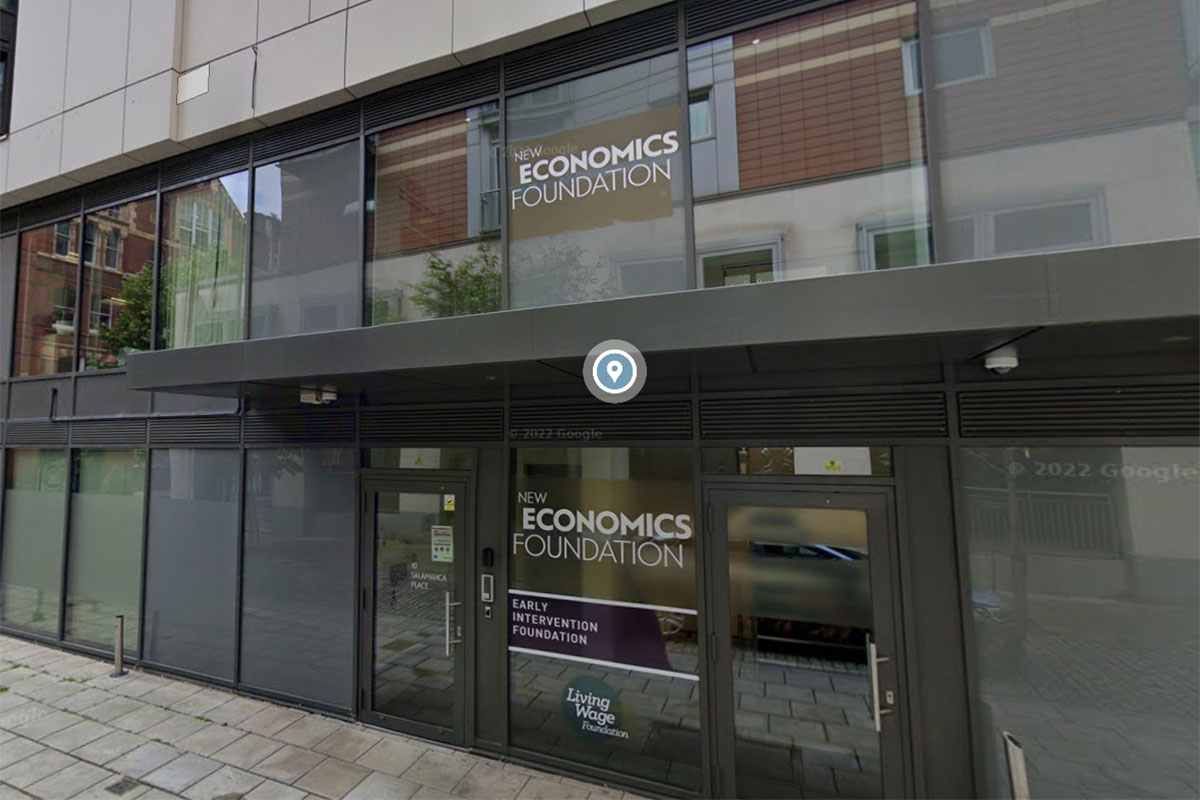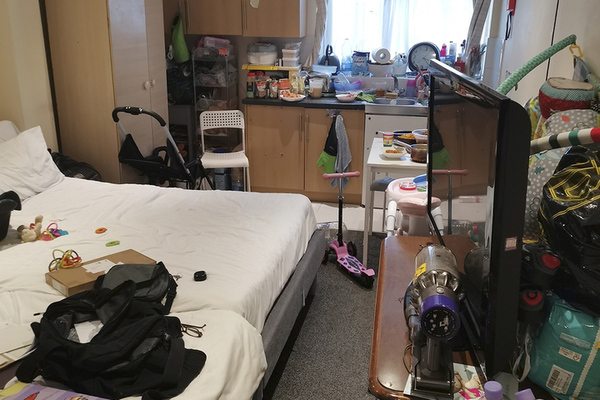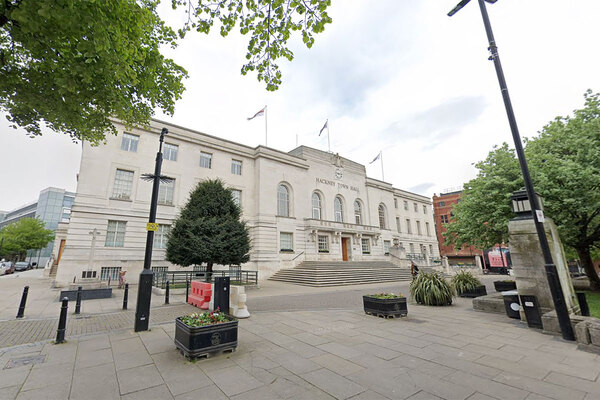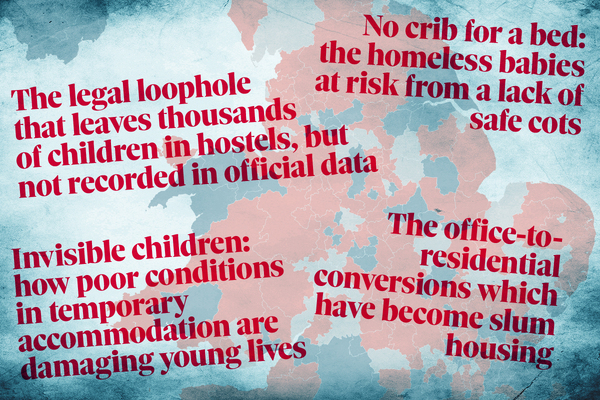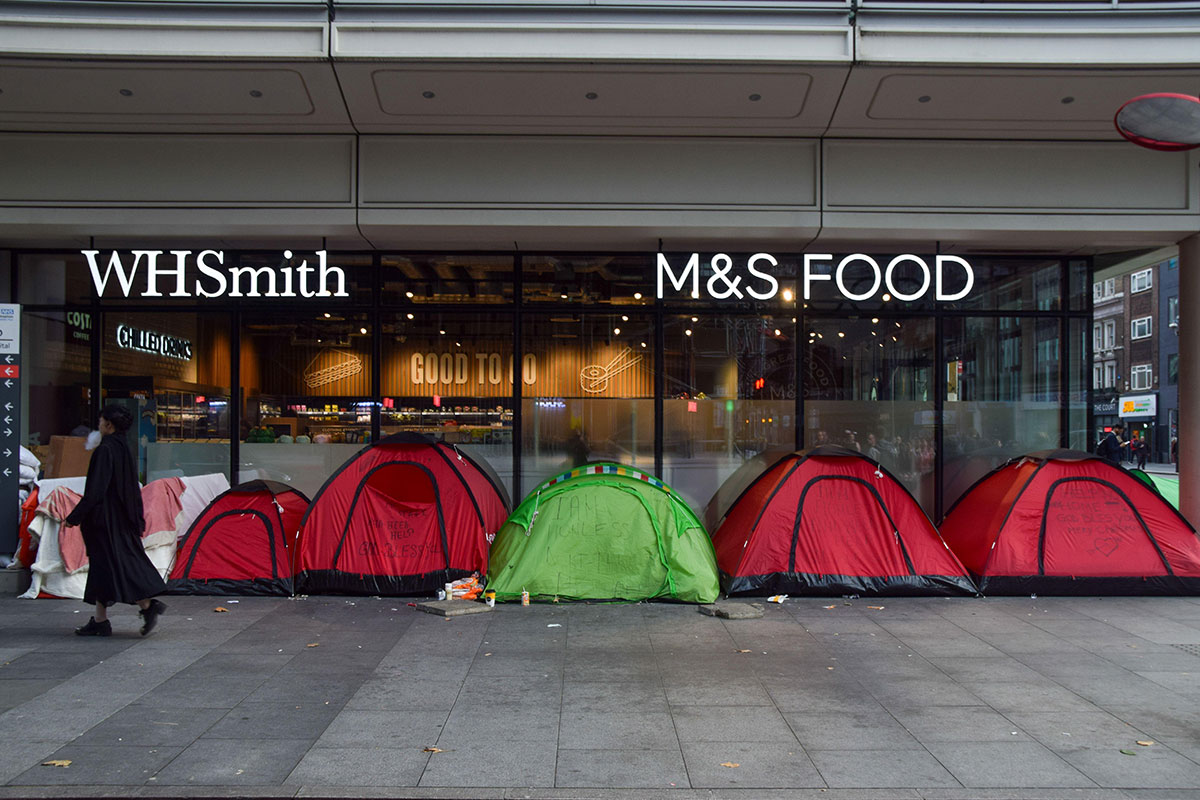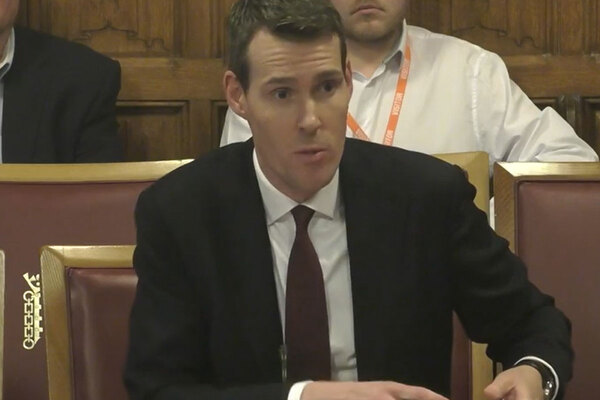You are viewing 1 of your 1 free articles
Thinktank reveals rise in spending on most expensive type of temporary accommodation in England
Average council spending on nightly paid temporary accommodation increased by 35 percentage points in England in four years, according to new research by the New Economics Foundation (NEF).
Freedom of Information requests the thinktank sent to English councils revealed that average expenditure on the most expensive type of temporary accommodation increased from £2.9m in 2018-19 to £3.9m in 2022-23.
The 102 councils that provided the data revealed their spending went from £204.8m in 2018-19 to £386m in 2022-23. However, the total figure will be much higher, as nearly 200 local authorities did not respond.
The research shows that a third of councils more than doubled their gross spending on nightly paid temporary accommodation in the same period.
The total cost of temporary accommodation placements across England increased from £1.4bn in 2018-19 to £1.8bn in 2022-23.
The latest government figures showed that there were 109,000 households in temporary accommodation on 30 September 2023, including more than 142,000 children.
Households should not normally stay in nightly paid, or B&B-type, accommodation for longer than six weeks, as it is, at best, unsuitable for families and, at worst, dangerous.
Research published earlier this year found that the condition of temporary accommodation was a factor in the death of 55 children over four years.
An Inside Housing investigation in 2022 revealed that nearly one in five studios and B&Bs used by London boroughs as temporary accommodation were found to contain serious health and safety hazards.
Another Inside Housing investigation this year found that thousands more households live in temporary accommodation with shared facilities than official data shows.
Spending is also putting severe pressure on local authorities’ budgets.
Several councils have declared bankruptcy recently, while leaders warned that the surge in spending on temporary accommodation could spell the “end of local government”.
The NEF’s investigation found that this expenditure looks set to continue rising.
Southampton City Council spent £23,000 in 2018-19 on gross nightly paid expenditure. It has spent £700,000 in the first three-quarters of this current financial year, an increase of more than 30 times.
Rother District Council spent just under £6,000 in 2018-19. The figure rose to £342,000 in just over the first half of 2023-24, an 8,000% surge in gross spend on nightly paid temporary accommodation over the past five years.
Manchester City Council’s gross spending on nightly paid temporary accommodation last year was £19.5m. Just over halfway through this financial year, it has spent more than £22m.
Solihull Council’s spending in just over half of this financial year reached £250,000, compared with £41,000 in 2021.
Several issues are exacerbating the issue, such as increases in private rents, no-fault evictions and a chronic lack of social housing.
Another problem is the subsidy rules for temporary accommodation.
Local authorities pay the cost of that housing benefit upfront and then are paid back by the Department for Work and Pensions through subsidy arrangements.
While households receive the full housing benefit they are entitled to, the amount the council can claim back is limited to 90% of Local Housing Allowance (LHA) rates from January 2011. This means that if the cost of the housing benefit claim is higher than those rates, the local authority loses money.
The 90% rule was introduced when LHA was first reduced from the 50th percentile to the 30th, in recognition of the fact that temporary accommodation is more expensive than general-needs housing. At the time, this meant the LHA rate for temporary accommodation was higher.
However, the January 2011 rates are much lower than the actual cost of temporary accommodation now, while the LHA rate payable for temporary accommodation is far lower than for general-needs LHA.
The NEF, which called for a change to the subsidy rules, said urgent solutions are needed.
It said its research has shown that, over the next two decades, acquisition programmes in London would save councils £1.5bn in reduced temporary accommodation costs, and deliver central government savings of £780m.
Hollie Wright, assistant researcher at the NEF, said: “Nearly one in five English council leaders say they are likely to declare bankruptcy in the next 15 months.
“Already-strained council finances are being decimated by the massive sums spent housing homeless people in substandard temporary accommodation.
“Councils have been hit with budget cuts, rising homelessness and rising rents. The result is that, over the past five years, spending on nightly paid temporary accommodation has skyrocketed.
“The prospect of yet more bankruptcies should be a wake-up call for our national government.
“This government should start by increasing the Local Housing Allowance. But the only real solution to solving the UK’s homelessness crisis, and supporting local councils, is a new generation of social housing.”
The Department for Levelling Up, Housing and Communities said in response: “We recognise councils are facing challenges, which is why we announced an additional £600m support package for councils across England, increasing their overall funding for this financial year to £64.7bn – a 7.5% increase in cash terms.
“This is on top of the £1.2bn we are giving them to help reduce the need for temporary accommodation and tackle homelessness in their areas.
“As part of our long-term plan for housing, our commitment to increasing social housing availability remains, and our £11.5bn Affordable Homes Programme will go further to deliver thousands more affordable homes to rent and buy across the country.”
Inside Housing is calling on all political parties to commit to delivering 90,000 social homes per year.
Sign up for our Council Focus newsletter
Already have an account? Click here to manage your newsletters
